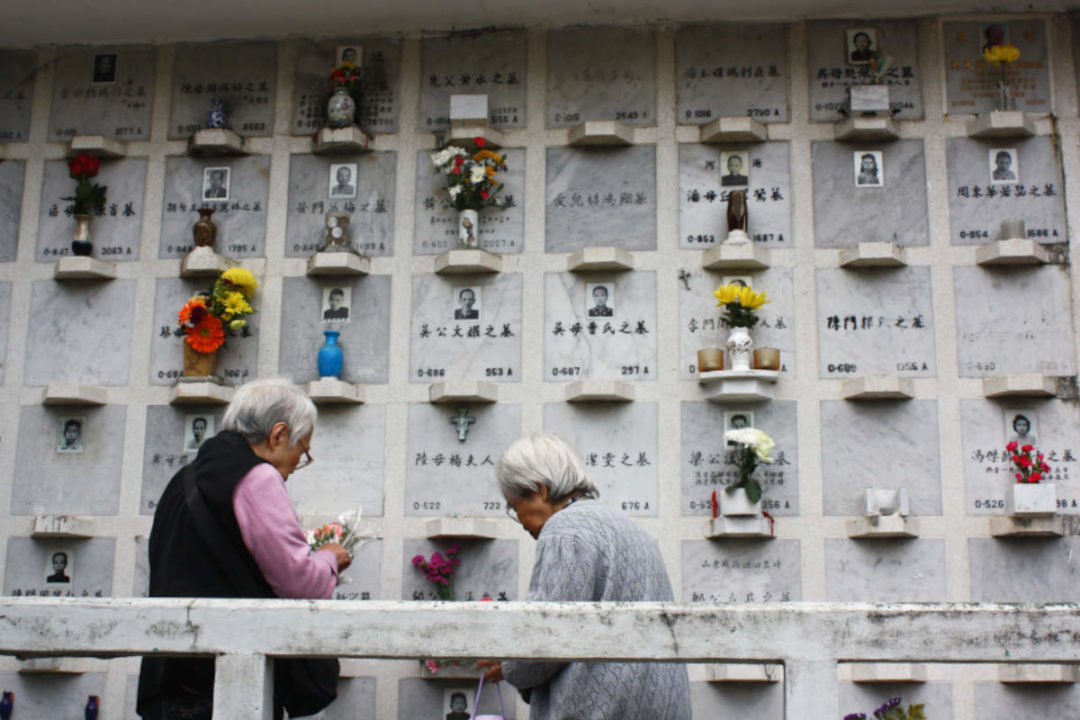Chung Yeung Festival is a public holiday celebrated on the ninth day of the ninth month in Hong Kong, mainland China, Taiwan, and Macau steeped in rich tradition that goes back 2,000 years. In Hong Kong specifically, people honour this traditional Chinese festival with a multitude of activities such as hiking up mountains, commemorating passed relatives, and rebalancing yin-yang energy to celebrate its history while reflecting on the origin story of a legendary swordsman behind this festival, which is uncovered here.
What is Chung Yeung Festival?
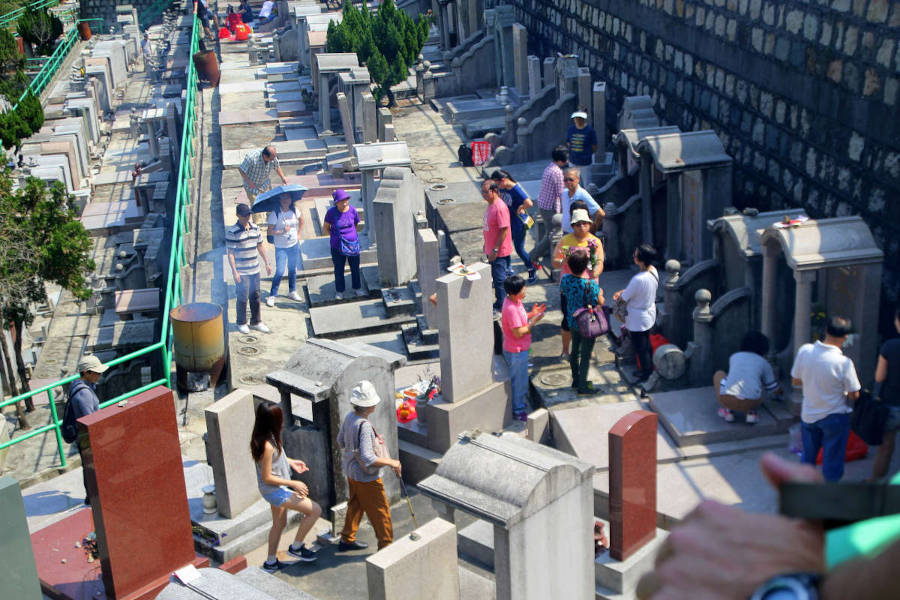
Chung Yeung Festival or Double Ninth Festival (重陽節, pronounced chung yeung jit in Cantonese or chóngyáng jié in Mandarin) is a day when Hong Kong people climb up high mountains, clean their ancestors’ graves, and eat cleansing foods to flush away stagnant energy. Observed on the ninth day of the ninth lunar month, Chung Yeung Festival will fall on October 23, 2023 on the Gregorian calendar. Chung Yeung Festival is not to be confused with Ching Ming Festival (清明節) celebrated in the spring, although they share some similarities. Both holidays honour ancestors and loved ones who’ve passed by performing tombsweeping and eating certain foods to celebrate, like cold glutinous rice dumplings. What differentiates them is that Ching Ming means ‘light’ or ‘brightness’, and emphasizes fresh beginnings after a cold season.
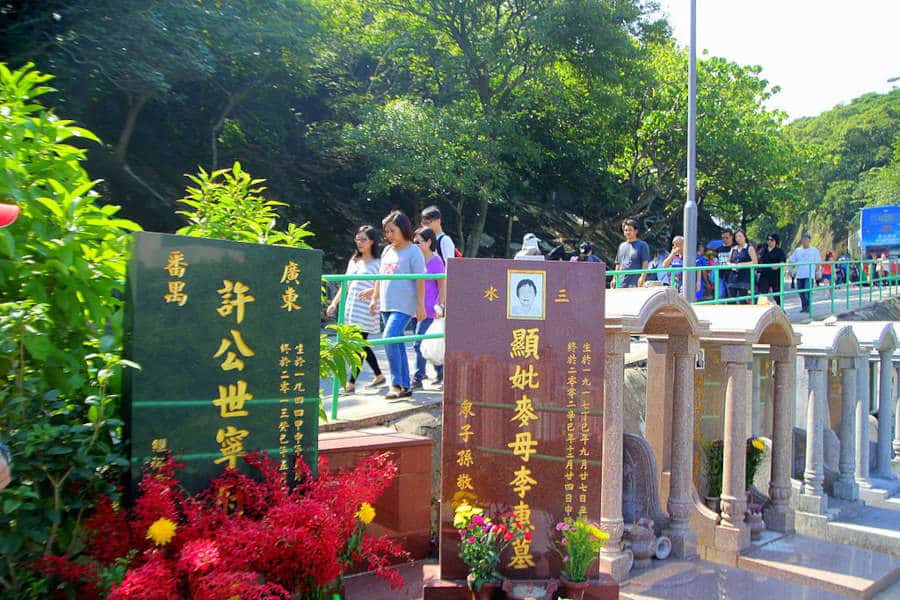
Nowadays, Chung Yeung is treated a lot like any other holiday to relish in relaxation from the hustle and bustle of life. Diving into its traditional roots, however, reveals a deeper meaning. The Cantonese phrase ‘chung yeung’ means ‘double yang’, yang being the lighter portion of the yin-yang (陰陽) symbol. Yang is seen as representing masculine energy, light, and the heavens, in contrast to yin’s feminine, grounded earth, passive energy.
Why is this day celebrated on the ninth day of the ninth month? In ancient Chinese numerology, the number nine is the largest yang number (odd yang numbers contrast with even yin numbers). This doubling of the largest yang number signifies compassion for the world and seeing all possibilities and the light in all situations, which is where the lighter-hearted customs of hiking and flying kites sprout from. However, yang doubling also results in what is believed to be an overabundance of yang energy, which could cause unlucky events on the date. Hence the ‘cleansing’ activities, which are really meant to air out excessive energy to rebalance yin and yang.
The origin story behind Double Ninth Festival
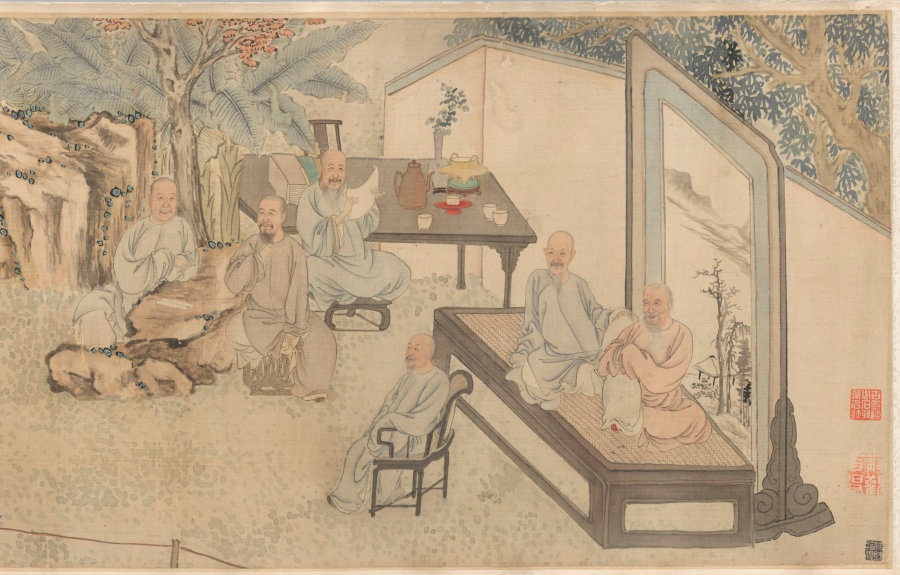
The celebration of Double Ninth stems from a heroic story that dates back to the Han Dynasty. There are variations to the story, but the plot in all of them revolves around a man named Huan Jing climbing to the top of a mountain and saving his family and fellow villagers.
A commonly told version explains how Huan Jing was fortunate to encounter the timely visit of a divine being or prophet who forewarned him to take his family to the highest part of the village to escape the atrocity to come their way. With great heed, he listened to this warning to avoid the onslaught of a demon. Upon Huan Jing’s return to the village, he was met with chaos. The demon had wiped out his entire village. Luckily, the immortal being that warned Huan Jing had mentioned that chrysanthemum wine would kill the demon. Following that tactic, the demon was defeated. Another ending to this story involves Huan Jing Huan slaying the demon with a magical sword, earning him recognition as a mythical swordsman.
Huan Jing was showered with good luck having been the one to receive the divine message and defeat the demon. Fast forward to today, and taking account of this story, most are reminded to count their blessings and ‘aim high’ in life.
How is Chung Yeung Festival celebrated?
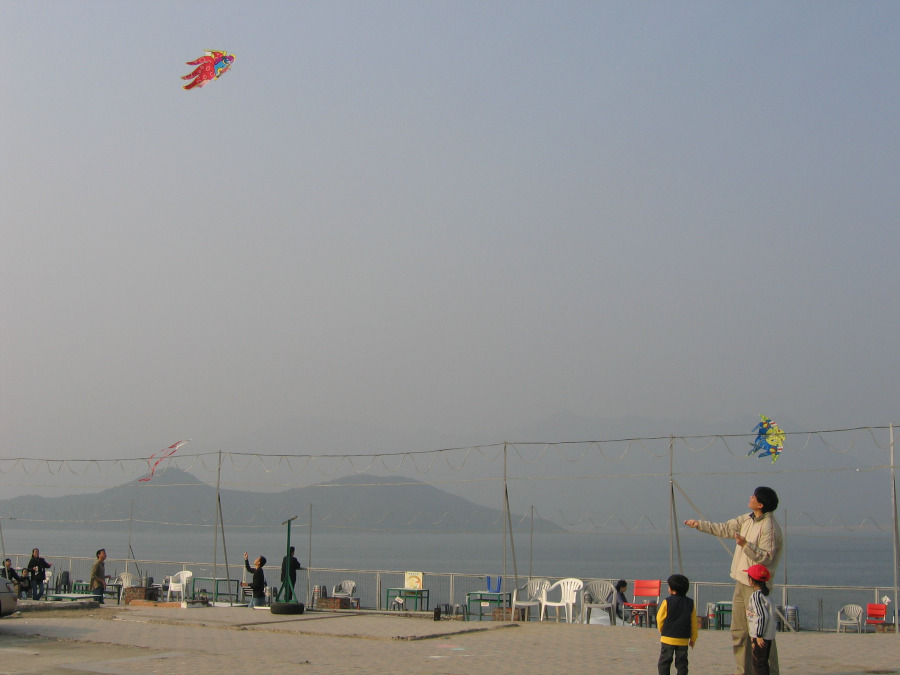
Celebratory activities on this day reference the story behind Chung Yeung with an emphasis on going to higher ground for better luck. Also called ‘Height Ascending Festival’ families take the opportunity of this day, and hopefully fair weather, to hike up to graves and pay respect to their ancestors. Some people even wear some sprigs of chrysanthemum or dogwood (茱萸) to ward off negative energy.
In Hong Kong, grave sites tend to be situated on mountains, and the higher the mountain, the higher the position in life one will be blessed with. Incense and offerings, like paper money, are burned and flowers are planted. Another custom is to fly kites, which is symbolic of getting rid of bad luck and energy by ‘flying’ them off to a faraway land. All of these actions are underlain by the belief in an excess of yang energy.
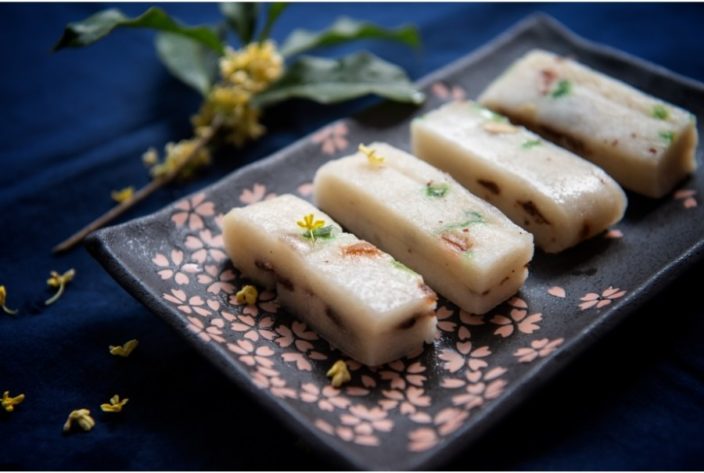
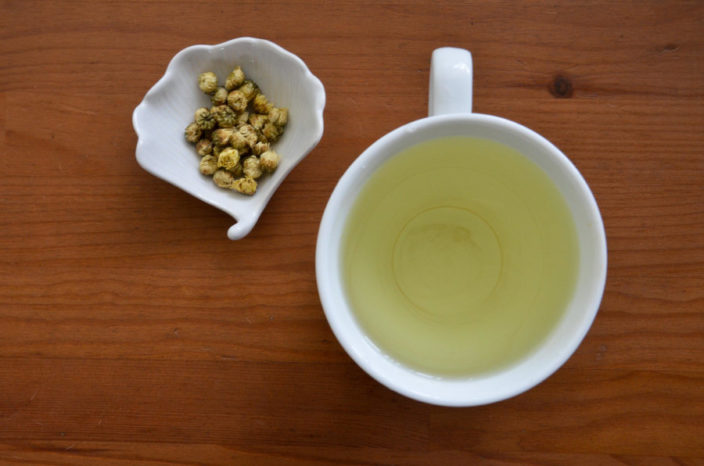
No festival is without food and drinks! Families eat delectable chung yeung cakes (重阳糕, pronounced chung yeung gou), also called chrysanthemum cakes or five-colour cakes. These are made of rice flour and sugar and topped off with garnishes like walnuts and dried fruit. ‘Cake’ in Cantonese sounds the same as ‘tall’ or ‘high’, although the Chinese characters are written differently. Nonetheless, the wish is that by eating the cake, one can prosper in life and ascend to higher levels, whether in career or wellbeing.
To quench thirst, chrysanthemum wine or tea is drunk to purify the soul and ward off evil, recalling how Jing Huan killed the demon in his village.
Double Ninth Festival in other Asian cultures
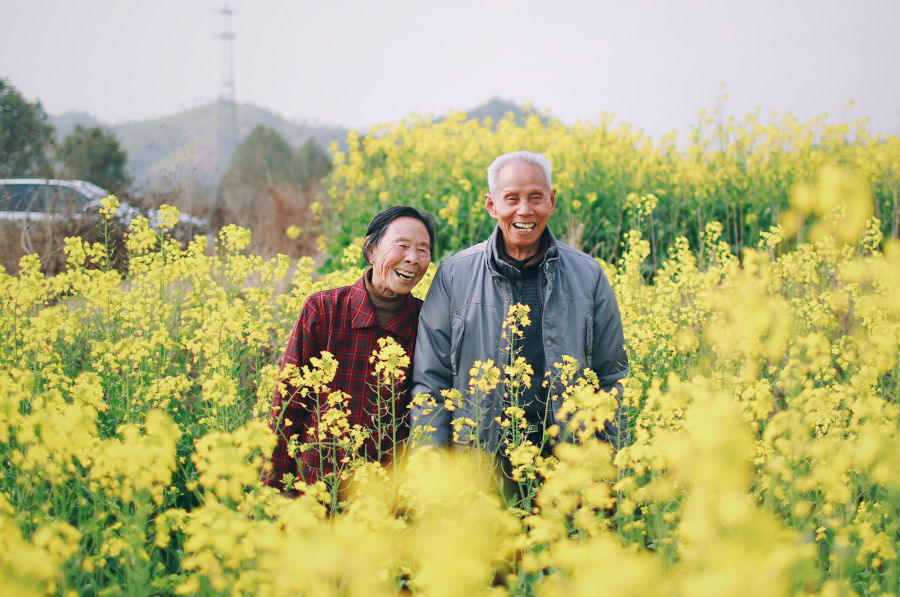
Chung Yeung Festival is recognized in other parts of Asia, including China, Macau, Taiwan, Vietnam, South Korea, and Japan, but is not a public holiday outside of Hong Kong and Macau. The vein that runs through all these festivals is that ancestors are revered through tomb sweeping and burning of offerings and, as with any festival, consuming customary foods.
In China, Chongyang Festival is celebrated as the Senior Citizens’ Festival to show respect to the elderly. In Japan, Obon Day in August honours the dead with observances like cleaning tombs and hanging lanterns as guidance for wandering spirits. In South Korea, Chuseok in September is when people head back to their ancestral homes and make food offerings that are fit for a feast.
FAQ about Double Ninth Festival
What is the meaning behind Chung Yeung Festival?
The ideas behind Chung Yeung Festival are an overabundance of masculine yang energy which must be rebalanced through cleansing rituals like cleaning ancestors’ tombs and drinking chrysanthemum wine.
What are Chung Yeung Festival celebration activities?
On Chung Yeung or Double Ninth Festival, celebrants in Hong Kong hike up mountains to renew and air out negative energy, pay respect to relatives who have passed away, fly kites, burn paper offerings, and plant flowers.
Is Chung Yeung Festival a public holiday?
Chung Yeung Festival is only a public holiday in Hong Kong and Macau. In 2023, the holiday falls on Monday, October 23.
Other traditional Chinese festivals: Lunar New Year — Lunar New Year Fair — Birthday of Che Kung — Chinese Lantern Festival — Kwun Yum Treasury Opening Festival — Ching Ming Festival — Tin Hau Festival — Cheung Chau Bun Festival — Buddha’s Birthday — Birthday of Tam Kung — Dragon Boat Festival — Birthday of Kwan Tai — Qixi Festival — Hung Shing Festival — Hungry Ghost Festival — Mid-Autumn Festival — Monkey King Festival — Birthday of Confucius — Chung Yeung Festival — Winter Solstice Festival.
Header image credits: istolethetv via Flickr


